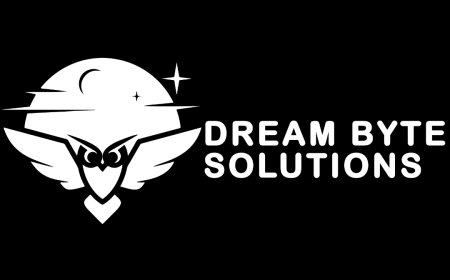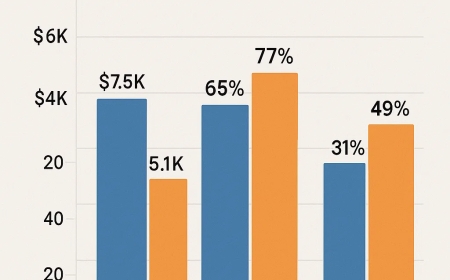Executive MBA vs Regular MBA: Best for Career Switchers?
Explore whether an Executive MBA or a Regular MBA is better for switching careers. Learn how each program suits professionals at different stages and helps unlock new opportunities. This detailed forum-style discussion weighs options for those aiming to pivot into new industries or leadership roles.

Switching careers can be both thrilling and daunting. Whether driven by dissatisfaction, industry change, or a desire for growth, making such a leap often requires more than motivationit needs credibility, strategy, and a new set of tools. For many, advanced education like an MBA becomes the springboard for this transition. But in the battle of Executive MBA vs Regular MBA, which one truly supports career switchers better?
This forum post delves into the core differences, benefits, and suitability of these two popular options for those standing at a career crossroads.
Understanding the Program Structures
Before evaluating which MBA is ideal for a career switch, it's crucial to understand what sets an Executive MBA apart from a Regular MBA. A Regular MBA is typically a full-time, immersive program aimed at early- to mid-career professionals. It often involves a break from full-time work, allowing students to engage deeply with courses, internships, and networking opportunities.
In contrast, an Executive MBA is designed for experienced professionals who remain employed while pursuing the degree. Classes are often held on weekends or in modular formats to suit a working schedule. The content is tailored toward leadership, strategy, and organizational change, assuming a level of maturity and professional insight.
Career Switchers: The Core Needs
Those considering a career shift often have one or more goals in mind: entering a new industry, moving into leadership, or gaining business acumen for entrepreneurship. These goals determine what kind of MBA experience is required.
Career switchers typically benefit from exposure to diverse student cohorts, active career services, internships, and recruiting opportunities. They seek not only knowledge but also validationsomething that reassures future employers theyre qualified and ready for a new path. Heres where the Executive MBA vs Regular MBA debate becomes nuanced.
The Case for a Regular MBA
A Regular MBA is often considered more favorable for those looking to switch careers entirely, especially when they are in their late 20s to early 30s. One of its main advantages is the access it provides to on-campus recruitment, summer internships, and student clubs aligned with specific industries. These elements allow students to explore new career directions in real time, build networks from the ground up, and potentially get hired into roles that align with their new ambitions.
Additionally, the immersive nature of a Regular MBA creates a transformative environment. Students are expected to adapt quickly to new business frameworks, tools, and team dynamics, which mirrors the process of changing careers. This full-time commitment can signal to employers that the individual is serious about their switch and has invested the time to build foundational skills.
The Case for an Executive MBA
However, the Executive MBA vs Regular MBA decision doesnt always tilt toward the traditional route. An Executive MBA can be a powerful catalyst for career transitionsparticularly for professionals with 8 to 15 years of experience looking to pivot within industries or ascend to leadership roles.
An Executive MBA allows one to apply learnings immediately at work, blending theory with practice in real time. It also fosters high-level peer interactions, often among senior executives, offering insights into different sectors and business models. This network can serve as an informal recruitment channel or open doors to consulting, advisory roles, or entrepreneurship.
For career switchers who do not wishor cannot affordto take a career break, the Executive MBA is a viable pathway to reposition themselves without losing momentum.
Employer Perception and ROI
Perceptions of an Executive MBA vs Regular MBA among employers are evolving. While a Regular MBA is often associated with agility and academic rigor, the Executive MBA signals seniority, real-world experience, and readiness for C-suite challenges.
Return on investment (ROI) is another factor. Regular MBAs may spend two years out of the workforce, incurring opportunity costs. In contrast, EMBA students retain their income and often receive partial or full funding from their employers. However, EMBA graduates may find fewer formal recruitment options, and the responsibility of navigating a career change rests more heavily on their shoulders.
Networking and Peer Learning
Another important consideration in the Executive MBA vs Regular MBA discussion is the nature of the peer group. Regular MBA cohorts are usually younger, enthusiastic learners from varied academic and professional backgrounds. This creates a dynamic learning space with fresh perspectives but may lack senior-level insight.
Conversely, EMBA cohorts bring seasoned professionals together. Their diversity in experience can expose career switchers to industries they hadnt previously considered and provide mentorship or job leads. However, this peer group may already be well-established in their careers, making it slightly harder for someone making a full industry switch to find role models or inspiration.
Making the Right Choice
Ultimately, choosing between an Executive MBA and a Regular MBA depends on the individuals experience level, financial situation, risk tolerance, and career switch intent. Younger professionals seeking to change industries, functions, or geographies may benefit most from a Regular MBA with structured recruitment and flexibility.
Mid-career professionals looking to pivot into strategic leadership roles or start their own ventureswithout leaving their jobscould find the Executive MBA more suited to their needs.
It is not a matter of which is better in absolute terms, but which aligns more closely with the switchers goals, background, and capacity for change.
Conclusion: No One-Size-Fits-All
In the debate of Executive MBA vs Regular MBA, there is no universal winner for career switchers. Both paths offer valuable tools, networks, and experiences. The best option is the one that fits your lifestyle, long-term ambitions, and readiness to commit to the change you envision.
Career switches are rarely linear, but with the right MBA, they can be strategically successful. Consider your destinationand choose the route that gets you there with the strongest foundation and the most meaningful support.
Read Also: Artificial Intelligence and The Illusion of Choice or Consent








&srotate=0)






















